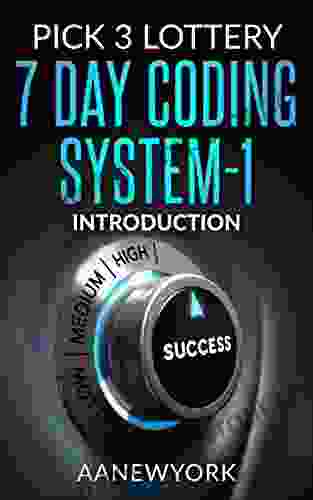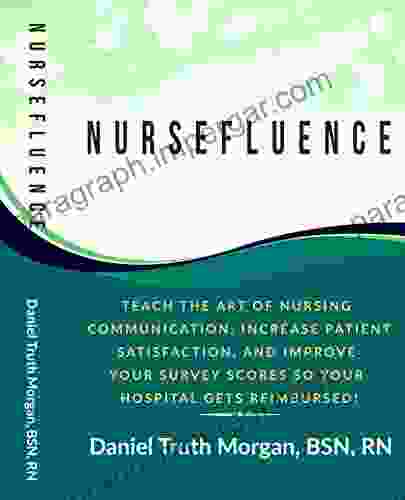DSM-5 Updates: APA Agrees to Replace "Mental Retardation" with "Intellectual Disability"

The American Psychiatric Association (APA) has announced a significant change in the upcoming fifth edition of the Diagnostic and Statistical Manual of Mental DisFree Downloads (DSM-5). The term "mental retardation" will be replaced with "intellectual disability," a move that has been met with praise from the disability rights community.
Why the Change?
The decision to change the terminology was based on several factors, including:
5 out of 5
| Language | : | English |
| File size | : | 192 KB |
| Text-to-Speech | : | Enabled |
| Screen Reader | : | Supported |
| Enhanced typesetting | : | Enabled |
| Word Wise | : | Enabled |
| Print length | : | 3 pages |
| Lending | : | Enabled |
* Stigma: The term "mental retardation" carries a significant stigma, leading to negative attitudes and discrimination against people with intellectual disabilities. * Outdated Language: The term "mental retardation" is outdated and no longer reflects the current understanding of intellectual disabilities. * Person-First Language: The new term "intellectual disability" puts the individual first, emphasizing their abilities and potential rather than their limitations.
Definition of Intellectual Disability
According to the DSM-5, intellectual disability is characterized by:
* Intellectual functioning below average: An IQ score of approximately 70 or below. * Significant limitations in adaptive functioning: Difficulty in daily activities such as self-care, work, and social interaction. * Onset during developmental period: Before the age of 18.
Impact on Diagnosis and Treatment
The change in terminology is expected to have a positive impact on the diagnosis and treatment of intellectual disabilities. By reducing the stigma associated with the condition, it may encourage more individuals to seek help and receive appropriate services.
The DSM-5 criteria also provide more specific guidelines for diagnosing intellectual disability, which may lead to more accurate assessments. Additionally, the emphasis on adaptive functioning will help clinicians focus on the individual's strengths and develop individualized treatment plans.
Implications for Education and Society
The change in terminology also has implications for education and society. By using person-first language, the DSM-5 promotes respectful and inclusive attitudes towards individuals with intellectual disabilities.
In educational settings, the move away from the label "mental retardation" may help create a more supportive and equitable environment for students with intellectual disabilities. It can also encourage educators to focus on their students' strengths and abilities rather than their limitations.
Criticisms and Considerations
While the change in terminology has been widely praised, some have raised concerns about the potential impact on legal and policy matters. For example, there is some debate over whether the new term will still qualify individuals for certain services and benefits.
It is important to note that the change in terminology is only one aspect of a larger effort to improve the lives of people with intellectual disabilities. Ongoing efforts to reduce stigma, increase access to services, and promote inclusive policies are equally crucial.
The APA's decision to replace "mental retardation" with "intellectual disability" in the DSM-5 is a significant step towards reducing stigma and promoting a more inclusive society for individuals with intellectual disabilities. The new terminology reflects a shift in attitudes and understanding, and is expected to have a positive impact on diagnosis, treatment, education, and advocacy efforts.
By using person-first language and focusing on the individual's strengths and potential, the DSM-5 helps create a more respectful and equitable environment for all.

5 out of 5
| Language | : | English |
| File size | : | 192 KB |
| Text-to-Speech | : | Enabled |
| Screen Reader | : | Supported |
| Enhanced typesetting | : | Enabled |
| Word Wise | : | Enabled |
| Print length | : | 3 pages |
| Lending | : | Enabled |
Do you want to contribute by writing guest posts on this blog?
Please contact us and send us a resume of previous articles that you have written.
 Book
Book Novel
Novel Page
Page Chapter
Chapter Text
Text Story
Story Genre
Genre Reader
Reader Library
Library Paperback
Paperback E-book
E-book Magazine
Magazine Newspaper
Newspaper Paragraph
Paragraph Sentence
Sentence Bookmark
Bookmark Shelf
Shelf Glossary
Glossary Bibliography
Bibliography Foreword
Foreword Preface
Preface Synopsis
Synopsis Annotation
Annotation Footnote
Footnote Manuscript
Manuscript Scroll
Scroll Codex
Codex Tome
Tome Bestseller
Bestseller Classics
Classics Library card
Library card Narrative
Narrative Biography
Biography Autobiography
Autobiography Memoir
Memoir Reference
Reference Encyclopedia
Encyclopedia Jim Quillen
Jim Quillen Ji Chen
Ji Chen Jeffrey F Beatty
Jeffrey F Beatty Joel Paris
Joel Paris Jim Bishop
Jim Bishop Jerzy Kosinski
Jerzy Kosinski Jenny Kales
Jenny Kales Jh Simon
Jh Simon Jennifer Bohnet
Jennifer Bohnet Jim Robbins
Jim Robbins Jill Liddington
Jill Liddington Joelle M Abi Rached
Joelle M Abi Rached Joan Wheelis
Joan Wheelis Jim Davis
Jim Davis Jennifer L Hartstein
Jennifer L Hartstein Jeffrey I Steinfeld
Jeffrey I Steinfeld Jill A Stoddard
Jill A Stoddard Jim Newton
Jim Newton Jm Landels
Jm Landels Johannes Kepler
Johannes Kepler
Light bulbAdvertise smarter! Our strategic ad space ensures maximum exposure. Reserve your spot today!

 Felipe BlairHow To Raise Happy, Healthy, Well-Adjusted Twins: A Comprehensive Guide for...
Felipe BlairHow To Raise Happy, Healthy, Well-Adjusted Twins: A Comprehensive Guide for... Henry HayesFollow ·9.8k
Henry HayesFollow ·9.8k Elmer PowellFollow ·5.8k
Elmer PowellFollow ·5.8k Christian BarnesFollow ·11.6k
Christian BarnesFollow ·11.6k Ronald SimmonsFollow ·7.1k
Ronald SimmonsFollow ·7.1k Luke BlairFollow ·6k
Luke BlairFollow ·6k Jacob HayesFollow ·12k
Jacob HayesFollow ·12k Douglas FosterFollow ·6.3k
Douglas FosterFollow ·6.3k Devin RossFollow ·7.6k
Devin RossFollow ·7.6k

 Christian Barnes
Christian BarnesUnleash Your Creativity: Build Interlocking 3D Animal and...
Discover the Art of Paper...

 Terry Bell
Terry BellUnveiling the Secrets of Winning: A Comprehensive Guide...
In the realm of chance and fortune, the...

 Albert Camus
Albert Camus101 Things That You Should Do Before Leaving The House In...
Starting your day right is...

 Anthony Burgess
Anthony BurgessForcing Move 2024 Volume: Unleash Your Inner Grandmaster
Embark on an extraordinary chess...
5 out of 5
| Language | : | English |
| File size | : | 192 KB |
| Text-to-Speech | : | Enabled |
| Screen Reader | : | Supported |
| Enhanced typesetting | : | Enabled |
| Word Wise | : | Enabled |
| Print length | : | 3 pages |
| Lending | : | Enabled |












